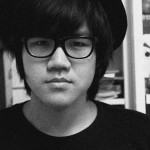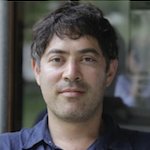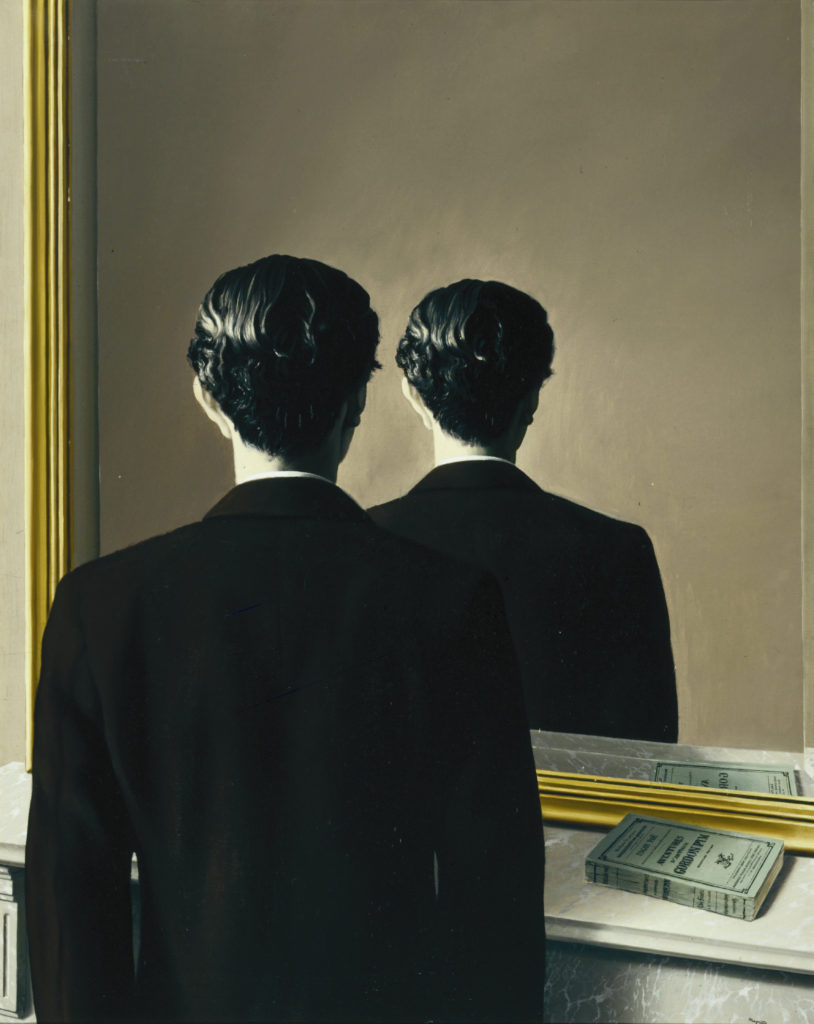In 2009, the Beijing-based archivist and artist Thomas Sauvin salvaged over half a million discarded negatives from a recycling plant on the outskirts of the city. Sauvin processed, archived, and curated selections of these photographs in a project called Beijing Silvermine. The images were taken between 1985 and 2005, a period of tremendous social and economic change in mainland China, as well as the height of consumer film photography in the region.
From 2011 to 2012, a collaboration between Sauvin and the Chinese animator Lei Lei led to the creation of Recycled, an experimental video work that animates over 3000 of the Beijing Silvermine photos, reconstructing anonymous memories of place and personal history in China over a 20 year timespan.
Taking Recycled as a point of departure, this screening will include a selection of works from experimental filmmakers and artists who explore innovative formal approaches in their reconstructions of place and memory on moving image.
The concept behind this program was partially inspired by RECYCLED CINEMA, an earlier screening program held in Boston that was developed and curated by the new Boston-based film initiative Crows & Sparrows in collaboration with the Balagan Film Series.
Summer of 1969, Cao Kai, China, 2002, 8 mins
One of the earliest found footage attempts from China, veteran curator and experimental filmmaker Cao Kai juxtaposes television footage of Mao’s cultural revolution with Bryan Adams’ summer concert, both in 1969.
Off-White Tulips, Aykan Safoglu, Germany/Turkey, 2013, 24 mins.
“Concentrating on James Baldwin’s extended stays in Istanbul in 60’s and 70’s, the film explores the limits of an autobiography mostly relying on found materials such as Sedat Pakay’s photography. Racism, transnational discourses, queer politics and appropriation art are also being investigated throughout the video-essay.” – Ann Arbor Film Festival
200,000 Phantoms, Jean-Gabriel Périot, 2007, France, 10 mins.
“In 1914, the Genbaku Dome in Hiroshima was a dazzling center of elegant urban life in Japan. On August 6, 1945, the atomic bomb called Little Boy detonated 500 feet away from the building, killing 78,000 people and leveling the city within a single second. But the dome miraculously survived, and in 2006 it stands as a silent reminder of the horrors of nuclear power. In this experimental short film, the history of the 20th century flies past, illustrated by 600 photographs of the Genbaku Dome.In 1914, the Genbaku Dome in Hiroshima was a dazzling center of elegant urban life in Japan. On August 6, 1945, the atomic bomb called Little Boy detonated 500 feet away from the building, killing 78,000 people and leveling the city within a single second. But the dome miraculously survived, and in 2006 it stands as a silent reminder of the horrors of nuclear power. In this experimental short film, the history of the 20th century flies past, illustrated by 600 photographs of the Genbaku Dome.” – Tribeca Film Festival
Erinnerungen (Memories), Sylvia Schedelbauer, Germany, 2004, 19 mins.
“A woman grows up during the bubble economy in Japan. Why did her parents never speak about the past? Using a box full of photos found in her family archive, Schedelbauer tries toconstruct one version of a family history.” – Anthology Film Archives
Recycled, Lei Lei and Thomas Sauvin, China, 2013, 6 mins.
Filmmaker in attendance. “In 2009, the Beijing-based archivist and artist Thomas Sauvin salvaged over half a million discarded negatives from a recycling plant on the outskirts of the city. Sauvin processed, archived, and curated selections of these photographs in a project called Beijing Silvermine. The images were taken between 1985 and 2005, a period of tremendous social and economic change in mainland China, as well as the height of consumer film photography in the region. From 2011 to 2012, a collaboration between Sauvin and the Chinese animator Lei Lei led to the creation of Recycled, an experimental video work that animates over 3000 of the Beijing Silvermine photos, reconstructing anonymous memories of place and personal history in China over a 20 year timespan.” – Genevieve Carmel / Crows & Sparrows
Followed by a 15-min lecture by Daniel Traub on Little North Road / Xiaobeilu Project.
“Its nicknames are “Chocolate City” and “Little Africa.” Located in Guangzhou, China’s third-largest city and a major industrial hub attracting workers from across China and the world, the Xiaobeilu neighborhood reflects China’s recent invsestment in the African continent – It is now home to thousands of African tradesmen and salesmen. For centuries people and trade have flowed from one region to another, but Daniel Traub’s Xiaobeilu project captures an entirely twenty-first century phenomenon.” – Aperture Magazine
 Lei Lei is a Chinese artist and independent animator based in Beijing. His animation and short video works have been shown in a variety of international film and animation festivals, such as IFF Rotterdam, Annecy Festival, and elsewhere. From 2011 – 2012, he collaborated with Beijing-based French collector Thomas Sauvin’s Beijing Silvermine Project for Recycled, a short video of 3,000 photographs selected from half a million discarded amateur photo negatives of a recycling plant on the outskirts of city. He is the recipient of a 2015 Asian Cultural Council grant and is currently visiting until the end of April.
Lei Lei is a Chinese artist and independent animator based in Beijing. His animation and short video works have been shown in a variety of international film and animation festivals, such as IFF Rotterdam, Annecy Festival, and elsewhere. From 2011 – 2012, he collaborated with Beijing-based French collector Thomas Sauvin’s Beijing Silvermine Project for Recycled, a short video of 3,000 photographs selected from half a million discarded amateur photo negatives of a recycling plant on the outskirts of city. He is the recipient of a 2015 Asian Cultural Council grant and is currently visiting until the end of April.
 Daniel Traub is a Brooklyn-based photographer and filmmaker. Since 1999, he has been engaged with a long term photographic projects in China including Simplified Characters which explore the transformation of China’s cities, and Peripheries which looks at the border region where urban and rural China meet. Traub’s photographs have been exhibited internationally, including solo exhibitions at the Catherine Edelman Gallery in Chicago and the Print Center in Philadelphia, and are in public and private collections, such as the Margulies Collection at the Warehouse and the San Francisco Museum of Modern Art. His work has appeared in publications including Aperture, European Photography and The New York Times Magazine. His first monograph, North Philadelphia, was published in 2014 by Kehrer Verlag.
Daniel Traub is a Brooklyn-based photographer and filmmaker. Since 1999, he has been engaged with a long term photographic projects in China including Simplified Characters which explore the transformation of China’s cities, and Peripheries which looks at the border region where urban and rural China meet. Traub’s photographs have been exhibited internationally, including solo exhibitions at the Catherine Edelman Gallery in Chicago and the Print Center in Philadelphia, and are in public and private collections, such as the Margulies Collection at the Warehouse and the San Francisco Museum of Modern Art. His work has appeared in publications including Aperture, European Photography and The New York Times Magazine. His first monograph, North Philadelphia, was published in 2014 by Kehrer Verlag.
 Xin Zhou is a curator and writer based in Brooklyn, NY. He has curated public programs and film series at Anthology Film Archives (NYC), UnionDocs (Brooklyn), OCT Loft (Shenzhen), The Wooster Group (NYC), and elsewhere. His writing has appeared in Artforum (China), The Brooklyn Rail, Film Comment, Indiewire, and Modern Weekly. Zhou also has worked with several film festivals and arts institutions in a variety of capacities, including the China Independent Film Festival (Nanjing), the Robert Flaherty Film Seminar (New York) and Wu Wenguang Studio (Beijing). He holds a MA in Cinema Studies from New York University.
Xin Zhou is a curator and writer based in Brooklyn, NY. He has curated public programs and film series at Anthology Film Archives (NYC), UnionDocs (Brooklyn), OCT Loft (Shenzhen), The Wooster Group (NYC), and elsewhere. His writing has appeared in Artforum (China), The Brooklyn Rail, Film Comment, Indiewire, and Modern Weekly. Zhou also has worked with several film festivals and arts institutions in a variety of capacities, including the China Independent Film Festival (Nanjing), the Robert Flaherty Film Seminar (New York) and Wu Wenguang Studio (Beijing). He holds a MA in Cinema Studies from New York University.







